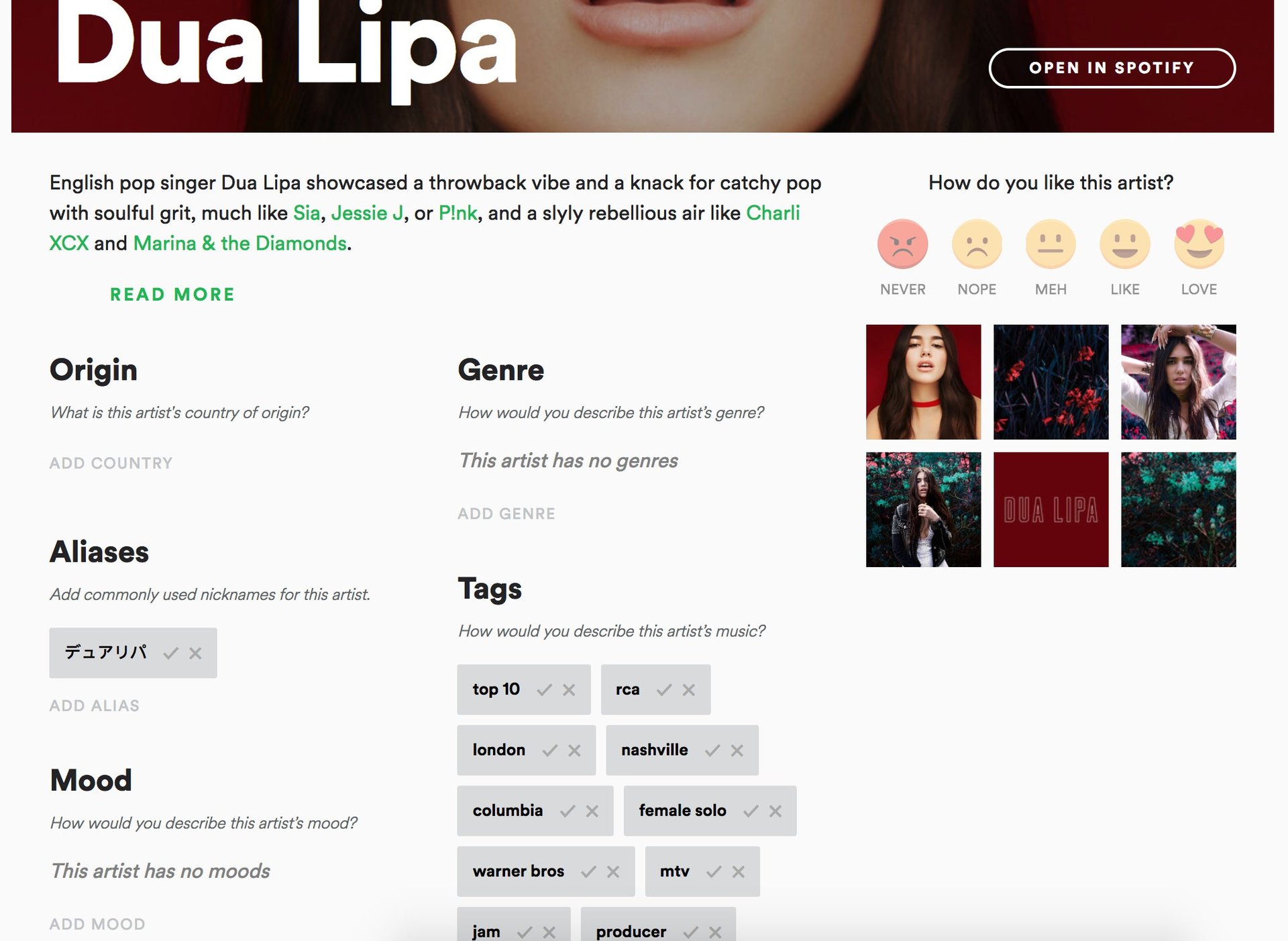Spotify just hired 160 million people to work for free
Spotify’s music data—its collection of back-end organizing details such as rights, track names, aliases, tags, and external links—is an unabashed mess. Just look at the dozens of legal battles the company has had to weather because of faults in its metadata organization. In some cases, rights are missing from a file; in others, errors lead to unlicensed materials popping up and rights-holders not getting paid for their work.


Spotify’s music data—its collection of back-end organizing details such as rights, track names, aliases, tags, and external links—is an unabashed mess. Just look at the dozens of legal battles the company has had to weather because of faults in its metadata organization. In some cases, rights are missing from a file; in others, errors lead to unlicensed materials popping up and rights-holders not getting paid for their work.
The music-streaming service, now 10 years old and about to go public, wants to clean up its act. To do so, it is enlisting all of its nearly 160 million users to suggest edits and additions to part of its trove of metadata via a new feature called “Line-In,” announced Monday (March 12). “By experimenting with this tool, we hope to better understand how Spotify listeners interpret music, so that we can improve experiences for both listeners and artists,” the company wrote in a blog post accompanying Line-In’s debut.
It’s a small stroke of genius. Spotify’s users, whether part of the 71 million people on the subscription tier or the other 88 million listening for free, have a vested interest in making sure the data on the platform are accurate and up-to-date, because that makes their listening experience smoother. The company, in return, gets free, crowdsourced labor and the opportunity to draw its customers deeper into its community.

Users on the Spotify desktop platform will now see an option titled “Suggest an Edit” next to every song and album; clicking it will take them to a web form where they can recommend edits to categories like tags and genres. (Album and track names are the responsibility of content providers and cannot be changed, but Line-In’s FAQ page notes that “a nice interface to gather this kind of feedback and get it to the right people” is in the works.)
All of this is more visionary in theory than in execution. A small beta group of users tested Line-In last autumn, but now the feature is open to millions of users streaming the service’s catalog of 30 million songs. It’s unclear how the company plans to comb through the slew of edits all those people send over on a daily basis; a Spotify spokesperson told Quartz the company has dedicated content and editorial teams that will work with the metadata edits, but did not give the number of specific employees assigned to do so.
For now, the gesture alone may be enough to soothe worried music industry leaders. Incomplete or faulty metadata has been a problem plaguing Spotify for years; US courts are currently adjudicating a $1.6 billion lawsuit filed by a major music publisher for, in part, copyright infringement due to poor data organization. While users cannot edit the rights-related data of songs, they can help sort out the mess on the front end. Renovating Spotify’s immense tangle of music data would make the music-streaming company shine a little brighter in the eyes of everyone: users, musicians, record companies, and investors alike.